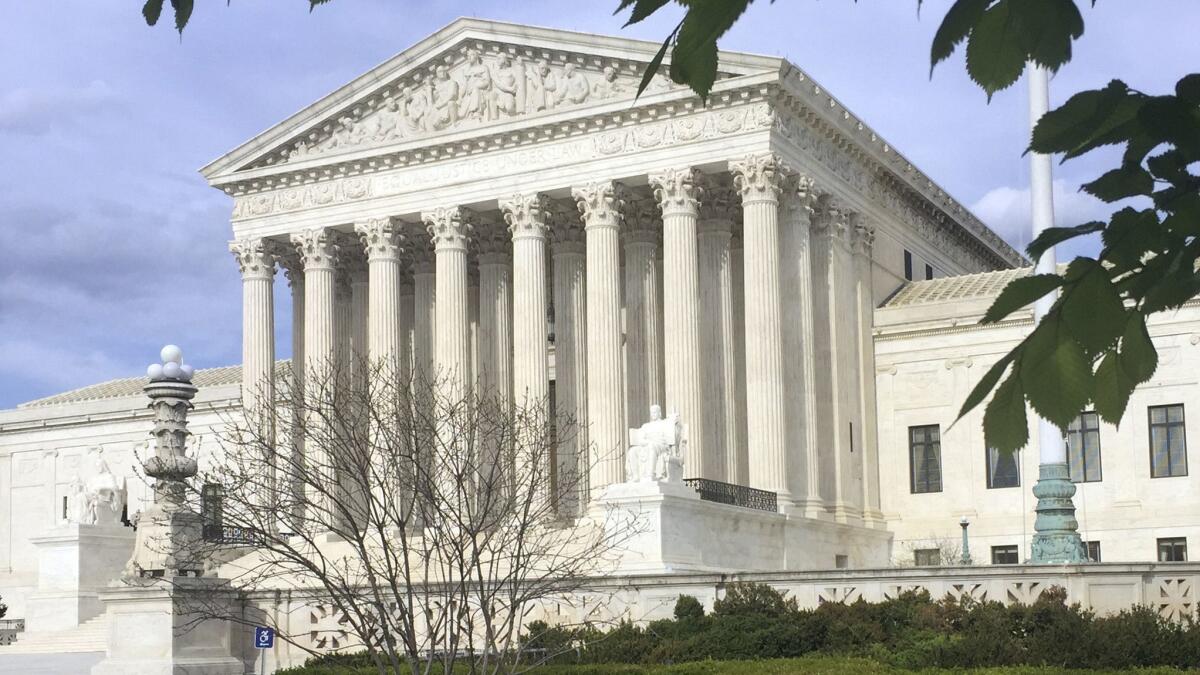Editorial: The Supreme Court gets it right: Lawyers can’t overrule their clients

There’s a reason why the right to assistance by counsel in criminal cases is part of the Bill of Rights and why the Supreme Court has held that a lawyer’s performance can be so ineffective than it can compromise that constitutional right.
But the fact that defendants are entitled to effective legal representation doesn’t mean that a lawyer gets to make the big, substantive decisions on behalf of his client. For instance, a lawyer should not be able to tell a jury that his client committed a crime when that client is determined to maintain his innocence — even if the lawyer thinks a guilty plea would be the defendant’s best legal strategy.
On Monday, the Supreme Court made that clear when it rightly ruled that, however well-intentioned, such defiance by a defense lawyer violates the 6th Amendment.
The 6-3 decision opens the way for a new trial for Robert McCoy, who was sentenced to death in Louisiana after being convicted of the 2008 murders of the mother, stepfather and son of his estranged wife. Over McCoy’s vociferous objections, his lawyer, Larry English, told the jury that the evidence was “unambiguous” and that “my client committed three murders.”
A lawyer should not be able to tell a jury that his client committed a crime when that client is determined to maintain his innocence.
English hoped that, by making these admissions, he would have an easier task convincing the jury that McCoy was guilty only of second-degree murder — because the defendant’s mental state made it impossible for him to form the intent necessary for first-degree murder. That outcome would have spared McCoy the death penalty.
This strategy, which seemed to be based on a misreading of Louisiana law, failed spectacularly. McCoy was convicted of all three murders, and received three death sentences.
In reversing the Louisiana Supreme Court, Justice Ruth Bader Ginsburg wrote that the 6th Amendment’s guarantee of a right “to have the assistance of counsel for his defense” has traditionally not been read to give an attorney complete control over the defense.
“To gain assistance,” Ginsburg wrote, “a defendant need not surrender control entirely to counsel.” She drew a distinction between the broad “objectives” of a defense, which are the client’s to decide, and “strategic choices about how best to achieve a client’s objectives,” which are the province of the lawyer.
“Counsel may reasonably assess a concession of guilt as best suited to avoiding the death penalty, as English did in this case,” Ginsburg said. “But the client may not share that objective. He may wish to avoid, above all else, the opprobrium that comes with admitting he killed family members. Or he may hold life in prison not worth living and prefer to risk death for any hope, however small, of exoneration.”
McCoy maintains his innocence. Thanks to the Supreme Court, he will now be represented by lawyers who won’t contradict him.
Follow the Opinion section on Twitter @latimesopinion and Facebook.
More to Read
A cure for the common opinion
Get thought-provoking perspectives with our weekly newsletter.
You may occasionally receive promotional content from the Los Angeles Times.










